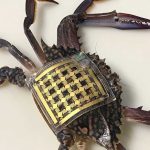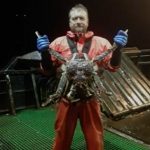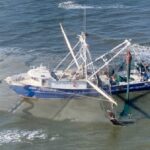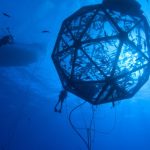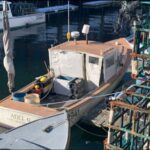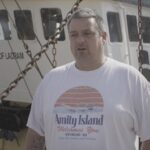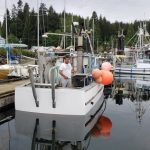Daily Archives: January 10, 2017
For the third consecutive year, testing finds Alaska seafood free of Fukushima radiation
 The Alaska Department of Environmental Conservation said in a statement that seafood samples from Alaska waters in 2016 tested negative for three Fukushima-related radioactive isotopes: iodine-131, cesium-134 and cesium-137. The findings for the tested species – including king, chum, sockeye and pink salmon, as well as halibut, pollock, sablefish, herring and Pacific cod – matched those from 2014 and 2015. “Fish species were chosen for testing based on their importance to subsistence, sport, and commercial fisheries and because they spend part of their life cycle in the western Pacific Ocean,” DEC officials wrote. “Samples of fish were taken by DEC environmental health officers during regular inspections of commercial fishing processors throughout the state.” Department spokeswoman Marlena Brewer said that the samples were tested at DEC’s Environmental Health Laboratory in Anchorage, using portable gamma-ray analysis equipment provided by the U.S. Food and Drug Administration. Click here to read the rest 18:26
The Alaska Department of Environmental Conservation said in a statement that seafood samples from Alaska waters in 2016 tested negative for three Fukushima-related radioactive isotopes: iodine-131, cesium-134 and cesium-137. The findings for the tested species – including king, chum, sockeye and pink salmon, as well as halibut, pollock, sablefish, herring and Pacific cod – matched those from 2014 and 2015. “Fish species were chosen for testing based on their importance to subsistence, sport, and commercial fisheries and because they spend part of their life cycle in the western Pacific Ocean,” DEC officials wrote. “Samples of fish were taken by DEC environmental health officers during regular inspections of commercial fishing processors throughout the state.” Department spokeswoman Marlena Brewer said that the samples were tested at DEC’s Environmental Health Laboratory in Anchorage, using portable gamma-ray analysis equipment provided by the U.S. Food and Drug Administration. Click here to read the rest 18:26
Counting Cards – FISH-NL says yes, FFAW says no

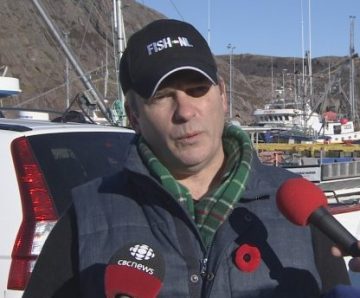 The breakaway group needs the support of 50 per cent plus one of the inshore harvesters in the province. FISH-NL claims there are, at most, 4,743 inshore harvesters, but the FFAW claims there are 10,200. FISH-NL revealed Monday 2,372 cards were submitted to the Labour Relations Board at the end of December, and asserted the number surpasses the necessary number. But the FFAW says FISH-NL has fallen short in its bid to represent inshore fishermen. FISH-NL says there are a total of 6,354 harvesters in Newfoundland and Labrador, according to a federal access to information request, but that figure includes both inshore and offshore. Read the story here 16:51
The breakaway group needs the support of 50 per cent plus one of the inshore harvesters in the province. FISH-NL claims there are, at most, 4,743 inshore harvesters, but the FFAW claims there are 10,200. FISH-NL revealed Monday 2,372 cards were submitted to the Labour Relations Board at the end of December, and asserted the number surpasses the necessary number. But the FFAW says FISH-NL has fallen short in its bid to represent inshore fishermen. FISH-NL says there are a total of 6,354 harvesters in Newfoundland and Labrador, according to a federal access to information request, but that figure includes both inshore and offshore. Read the story here 16:51
NFI sues NOAA over new IUU rule
The National Fisheries Institute 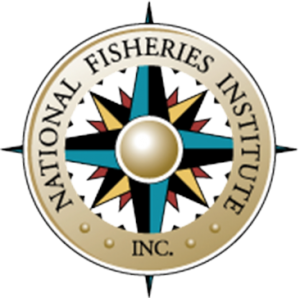 (NFI) has sued the National Oceanic and Atmospheric Administration (NOAA) and the Department of Commerce over a recently enacted rule that could cost the commercial fishing industry as much as USD 1 billion (EUR 946 million) annually. NOAA’s National Marine Fisheries Service issued a final rule on 9 December that requires U.S. seafood importers to trace the origin of the fish they import to either the specific boat that caught the fish or to its collection point, as well as the location and date the fish was caught. The regulation was designed to combat illegal, unregulated and unreported (IUU) fishing regulation, but it will cost the industry at least USD 100 million (EUR 95 million) per year, NFI said in a press release. Read the story here 14:11
(NFI) has sued the National Oceanic and Atmospheric Administration (NOAA) and the Department of Commerce over a recently enacted rule that could cost the commercial fishing industry as much as USD 1 billion (EUR 946 million) annually. NOAA’s National Marine Fisheries Service issued a final rule on 9 December that requires U.S. seafood importers to trace the origin of the fish they import to either the specific boat that caught the fish or to its collection point, as well as the location and date the fish was caught. The regulation was designed to combat illegal, unregulated and unreported (IUU) fishing regulation, but it will cost the industry at least USD 100 million (EUR 95 million) per year, NFI said in a press release. Read the story here 14:11
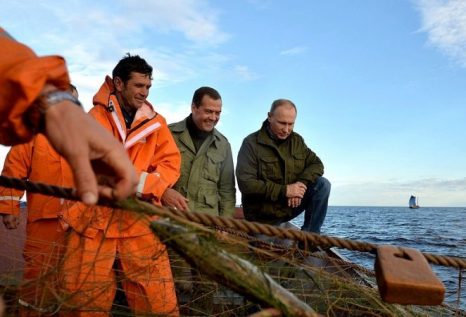
All the President’s Fishermen? Who’s Standing Behind Vladimir Putin!
In September, Russian President Vladimir Putin and Prime Minister Dmitry Medvedev took a trip to Ilmen Lake in Novgorod Oblast, about 500 kilometers northwest of Moscow, where they “accidentally” met and ate soup by the fire with a group of “local fishermen.” The trip, which was clearly staged, was supposed to highlight Putin and Medvedev’s connection to Russia’s “simple people,” and was reported on widely in state media. RuNet users had a good laugh about the idea of Putin and Medvedev stumbling across a group of fishermen in the course of their daily work, but it wasn’t until Orthodox Christmas last week that the fun really got started, Read the story here! 13:17
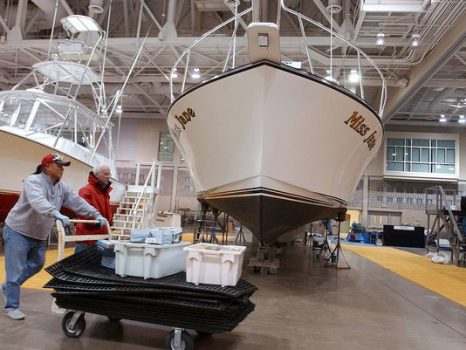
43rd Annual East Coast Commercial Fishermen’s and Aquaculture Trade Fishermen’s Expo is Jan. 15
The Maryland Watermen’s Association will host its 43rd annual East Coast Commercial Fishermen’s and Aquaculture Trade Expo at the Roland E. Powell Convention Center in Ocean City this weekend. It’s the only event of its kind in the Mid-Atlantic Region. The weekend will be full of seminars, fisherman gear, equipment and more. Friday, the event will begin at 11 a.m. and run until 5 p.m., Saturday the event will run from 10 a.m.- 5 p.m. and Sunday from 10 a.m.- 3 p.m. Tradeshow pre-registration tickets can be found online for $25 and tickets to the Friday cocktail party can be found online, as well, for $35. Seminars will begin on Saturday at 11 a.m. and run every half hour with Don Webster of the University of Maryland Extension moderating. More info, Read the story here 12:29 Maryland Watermen’s Association website www.marylandwatermen.com
Are Maine halibut headed for trouble?
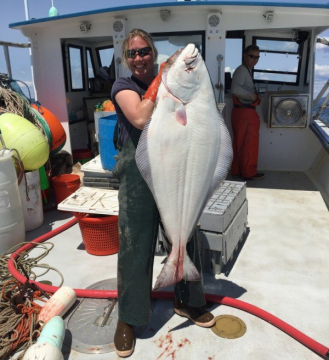 Go to Scales, an elegant waterfront restaurant on a Portland pier, and a plate of pan-roasted halibut with hazelnuts, brown butter and new potatoes will cost you $38, tax and tip extra. Go down to the dock in Lubec or Stonington during May and June, when Maine fishermen are allowed to harvest halibut from state waters inside the three-mile limit, and $38 would buy you about 5 pounds of halibut, if you could buy less than a whole fish directly off the boat. And that’s the problem. Over the decade between 2006 and 2015, the last year for which the Department of Marine Resources has figures, the boat price for halibut increased some 44 percent and landings increased from just 30,018 pounds worth about $139,000 to more than 93,000 pounds that brought fishermen some $623,000. Now federal fisheries regulators are saying that halibut may be in trouble. Read the story here 12:14
Go to Scales, an elegant waterfront restaurant on a Portland pier, and a plate of pan-roasted halibut with hazelnuts, brown butter and new potatoes will cost you $38, tax and tip extra. Go down to the dock in Lubec or Stonington during May and June, when Maine fishermen are allowed to harvest halibut from state waters inside the three-mile limit, and $38 would buy you about 5 pounds of halibut, if you could buy less than a whole fish directly off the boat. And that’s the problem. Over the decade between 2006 and 2015, the last year for which the Department of Marine Resources has figures, the boat price for halibut increased some 44 percent and landings increased from just 30,018 pounds worth about $139,000 to more than 93,000 pounds that brought fishermen some $623,000. Now federal fisheries regulators are saying that halibut may be in trouble. Read the story here 12:14
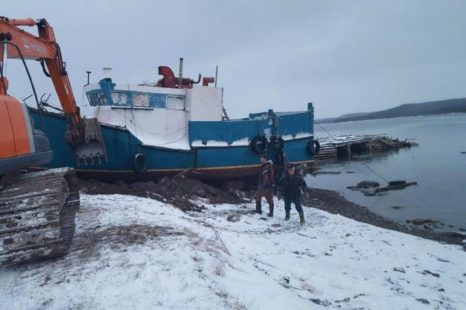
‘An act of the devil’: Cold Water Cowboys’ boat washes ashore in storm
The fishing vessel, which made a name for itself on the Discovery Canada reality TV series Cold Water Cowboys, succumbed to the harsh winter seas of the North East Gulf when a storm struck the region on Dec 30. The Sea Doo was tied up at the family wharf in Port Saunders when the storm hit with an unusual ferocity. Conway Caines, who witnessed the destruction of his boat after being alerted by a phone call, described such conditions in that area as an “anomaly.” He had never seen anything quite like that there before. “Everything lined up, I guess,” he told the Northern Pen. “There was a big tide surge. The moon was out and the tide was high.” Read the story here 10:07
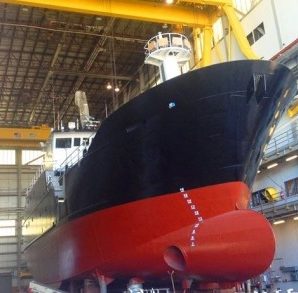
New North Pacific fleet would cost $11.6B
Rejuvenating Alaska’s large vessel fishing fleet could be nearly an $11 billion boon for Outside shipyards, according to a new McDowell Group report. The Alaska-based research firm pegged $11.3 billion as the cost to completely replace the 414 fishing and processing vessels longer than 58 feet that participate in North Pacific fisheries off the coast of Alaska in a study commissioned by the Port of Seattle and the Washington Maritime Federation. Regulations require boats in Alaska’s salmon fisheries to be less than 58 feet, which makes that length the general delineator between smaller boats focused on near shore fisheries and larger vessels that fish and process catch in federal waters at least three miles offshore. Additionally, most of the more than 5,000 smaller commercial fishing boats that operate in Alaska homeport in the state and nearly all of the larger vessels in federal fisheries have Puget Sound addresses for a host of reasons. While the $11.3 billion baseline figure includes the cost to eventually replace a dozen vessels among the 414 built since they year 2000, according to McDowell Group the fleet averages 40 years old and 87 percent of the vessels were built before 1990. Read the article here 09:14
Marine Patrol seeks permission to bug boats that fish for “bugs”
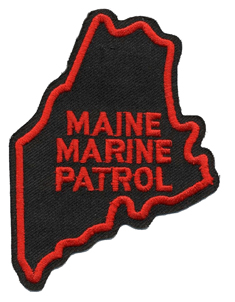 Last November, the Marine Patrol charged a Spruce Head lobsterman with fishing 156 lobster traps more than the 800 he was authorized to fish. In October, a trap war between fisherman from Lobster Management Zones B and C reached such epic proportions that the state offered a $15,000 reward for information that could help the Marine Patrol with its investigation of incidents that, according to the Department of Marine Resources, had generated considerably more than $350,000 in lost gear. Zone B extends from Schoodic Point to Newbury Neck in Blue Hill Bay while Zone C stretches from Newbury Neck to Cape Rosier. Long before all that excitement came to public attention, DMR last April proposed legislation that would significantly expand the Marine Patrol’s authority to place electronic surveillance devices on commercial fishing boats surreptitiously, without first obtaining a search warrant from a judge or permission from the boat owner. Read the story here 08:42
Last November, the Marine Patrol charged a Spruce Head lobsterman with fishing 156 lobster traps more than the 800 he was authorized to fish. In October, a trap war between fisherman from Lobster Management Zones B and C reached such epic proportions that the state offered a $15,000 reward for information that could help the Marine Patrol with its investigation of incidents that, according to the Department of Marine Resources, had generated considerably more than $350,000 in lost gear. Zone B extends from Schoodic Point to Newbury Neck in Blue Hill Bay while Zone C stretches from Newbury Neck to Cape Rosier. Long before all that excitement came to public attention, DMR last April proposed legislation that would significantly expand the Marine Patrol’s authority to place electronic surveillance devices on commercial fishing boats surreptitiously, without first obtaining a search warrant from a judge or permission from the boat owner. Read the story here 08:42



































